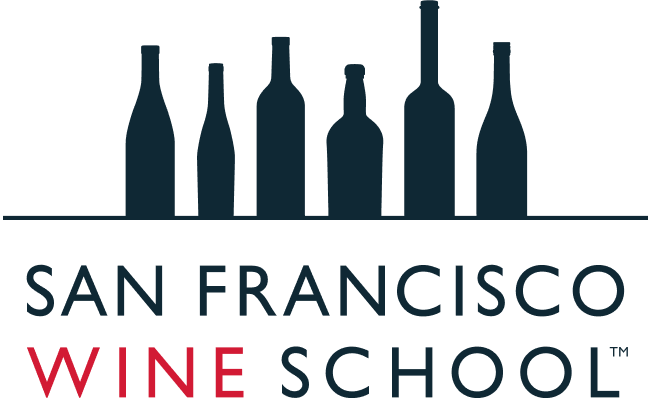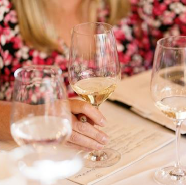After many years working in restaurant management, later some with a winery near his Oregon home, Patrick Spencer set his sights on a related niche which had at the time been the cause of much hand-wringing--cork. Since 2008 his Cork Forest Conservation Alliance (CFCA) has worked to dispel or recalibrate the understanding what for wine professionals continues, even in the face of competition from plastics and metals, as the traditional bottle closure. While hosting Marbella Spain's Climate Change & Wine conference in April 2011, I met this charismatic former chef whose successful Cork ReHarvest project was instituted to recycle used corks in the US and Canada. Lately he may be found speaking at many wine trade conferences while the CFCA has partnered with Spain's 'Two Birds-One Stone' eco-tourism company for detailed, 11-day tours of its historic cork forests. Limited to 10 people per tour, four will be conducted during the May-July each year.
You're engaged in promoting cork's production and use by the wine sector, a connection with an historic yet tangential relationship. What's your direct personal background in working with wine?
I was classically trained in France and Italy as a chef with extensive training in wine at that time. I was a restaurateur for nearly two decades as a chef and chef/owner in Connecticut and the Berkshires in Massachusetts where we had 40 wines by the glass. When I left the restaurant business I worked at Willamette Valley Vineyards where I was its sustainability coordinator.
In the mission statement posted on your CorkForest.org site you write that you 'speak for the cork forests'. What language(s) do you speak? That is, where exactly are cork oaks found?
They're found tin the Med Basin in seven countries--Spain, Portugal, France, Italy, Morocco, Tunisia and Algeria.
Granted, taint given to wines from contact with cork has diminished in recent years but, given the problems associated with this historical bottle closure, why should the discerning and busy sommelier not seek out other closures for the wines on their list?
The common misconception is that cork is the sole culprit in transferring TCA to wine. Every major study done concerning TCA and winery practices has conclusively proven that TCA, if present in the winery, can be transmitted to the wine regardless of the closure. TCA is commonly found in the floors, walls, hoses, barrels, palates, and cardboard boxes in wineries without exception. Plus, if wineries are still using public water supplies to clean their winery and tanks and barrels, those water supplies have been chlorinated so the contamination allowing for TCA is, from that, massive. At some point it's imperative to say 'our organization isn't invested into what is wine quality' so we'd never say to a winemaker to use one closure versus another. But having all the information will help them to know that TCA isn't solely an issue borne out by cork. We're not the mouthpiece of the cork industry.
Many in the wine business argue that the cork industry was for too long complacent in responding to the ongoing complaints made of their products by those working with wine. Why should they now be trusted?
There’s no doubt the cork industry was complacent when it had 100% of the wine industry’s business – there was little impetus to increase quality because cork was the only way to close a bottle. When you’re the only restaurant in the desert you don’t have to serve great food, but only be open; that’s how some in the cork industry saw themselves at that time. In any industry – auto, wine or clothing – there are those making questionable or better quality. So, there were and are reputable cork companies which always keep their standards high, but there were smaller companies whose practices weren’t as good as the larger ones. Buyer beware, you get what you pay for in this world. Winemakers should choose the best quality closure for their product. The problems came from a small number of cork companies with little to no quality control, often selling to brokers who in turn sold bad corks to distributors or directly to winemakers. If you make wines with poor grapes your wines aren’t going to be great either.
Some of the initiatives you've instigated in promoting cork are clever and intriguing. Tell our readers of them.
We started the first cork recycling program, Cork Reharvest, in 2007 primarily using it as an educational tool. 90% of what we do in the US is education-based. Many people think cork trees are cut down and they’re not, many people thought this was tantamount to what is happening to the rain forests…and it’s not. Our new Cork Forest EcoTour has us working with a Spanish ecotourism company with an 11-day tour of three regions of Spain. Limited to 10 people it gives the traveler a total immersion in the cork forest, its food, wine, culture, economics, and the environmental aspect of the harvest. We bring people there because the cork forests support a culture that is unique in the world of forestry. The website locator is www.frombarktobottle.org.
Bearing in mind limitations imposed by employers, what can a bartender or sommelier do at his/her establishment to help CorkForest.org?
In the world of wine now, there is no wine, variety, region, or nation outside of New Zealand where a quality bottle could be bought at the same price point regardless of its closure. When making a choice of this agricultural product, keep in mind that all the systems surrounding it should support it. Sustainability should travel through the closure. We need to consider all aspects of winemaking, everything should be sustainable. Plastic and screwcaps don't support a healthy climate. The trees of the planet are, with the oceans, our Earth's 'lungs'.
How does the acceptance of cork closures, or lack thereof, differ between wine professionals and the general public?
For the most part the average American sees a wine sealed with cork as being a higher quality product. But there’s a shift in that perception because wine professionals are telling people that so many wines are being screwcapped due to erroneous information. When a person enters a restaurant or shop and they trust their sommelier or salesperson, that information becomes gospel to them. The retailer/restaurateur has been given this misinformation by the people selling them wine. I’ve had somms say to me that they’re selling screwcapped wines because they think it’s saving the cork oaks from being felled.
What wines do you prefer to drink at home?
My two favorite wine categories are Oregon Pinot noir and wines from Rioja.
More of Patrick Spencer's work may be found at https://www.youtube.com/watch?v=YDE7OXr-5gg&app=desktop
Check out our full schedule of programs, workshops and public events. Private, customized experiences and corporate training is also available.


